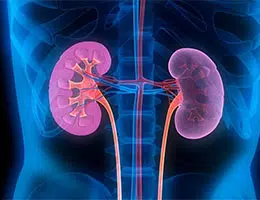 The adjective insipid , which comes from the Latin insipĭdus , refers to the absence of flavor . Flavor, in turn, is the impression that a substance generates in the sense of taste.
The adjective insipid , which comes from the Latin insipĭdus , refers to the absence of flavor . Flavor, in turn, is the impression that a substance generates in the sense of taste.
When something lacks flavor , or has a lower or different degree of flavor than it should have, it is classified as tasteless. For example: "I didn't like the restaurant, the two dishes we ordered were tasteless," "They gave me tasteless tea to drink that wasn't even hot," "This vegetable needs to be seasoned well since it is somewhat tasteless."
Because the tasteless is not perceived on the tongue , it does not produce a pleasant or pleasurable sensation. That is why it is always a matter of ensuring that the food is not tasteless. To enhance the flavors or modify them, seasonings such as salt, pepper, spices, etc. are used.
Beyond flavors, the idea of insipid is used to conceptualize that which is lacking in grace, vigor or strength . In this way, a literary critic can affirm that a book is insipid since its plot did not captivate him at any moment or generate any kind of emotion.
A soccer match that ends 0-0 , meanwhile, can be defined as insipid . The rating is linked to the fact that the match did not have exciting plays and that is why it was boring.
Of course, in these cases, subjectivity plays an undeniable role, which is why two people can have very different opinions regarding the same sporting event: while one may find it insipid due to the lack of annotations, the other may think that the moments in which which each team seemed to be on the verge of victory were really exciting .
In the field of medicine , finally, diabetes insipidus is called a fairly common condition that is characterized by the kidneys losing the ability to prevent the elimination of water. This disease, known by the acronym DI , is not the same as regular diabetes, although both have some symptoms in common, such as excessive thirst and urination.
There is a form of this disease known as central diabetes insipidus and it occurs when the level of antidiuretic hormone (whose acronym is HAD and is also called vasopressin ) is below normal values in our body. HAD arises in the area of the brain called the hypothalamus; It is then stored and secreted from the pituitary gland, at the base of the brain.
In very few cases, the cause of diabetes insipidus is a genetic problem. Regarding its symptoms , we can point out the following:
 * urine production increases abnormally;
* urine production increases abnormally;
* the patient feels an excessive level of thirst;
* Mental clarity is affected due to the increase in sodium level and the loss of fluid as a result of the patient's inability to drink.
During the medical consultation, the doctor must check that the patient has experienced these symptoms in addition to asking certain questions about his or her medical history . Among the tests that may be prescribed are the following:
* sodium and osmolarity in the blood;
* desmopressin challenge, a test abbreviated as DDAVP ;
* MRI of the skull;
* urinalysis;
* urine concentration;
* enuresis.
Treatment should focus on the cause of pituitary insipidus. For example, vasopressin is commonly administered by injection, tablet, or nasal spray to control urine output, maintain fluid balance, and prevent dehydration. If the case is not serious, then it is usually sufficient to tell the patient to drink more water.
